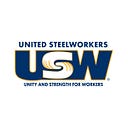Fighting for Time to Heal
By David McCall
USW International President
Mike Morales’s doctor advised him to take four weeks off for an important procedure, and the longtime crane operator readily agreed, secure in the knowledge that he wouldn’t lose a dime in pay or face other repercussions at work.
Morales’ union contract enabled him to step away from his job at the Chevron Phillips plastics complex in Pasadena, Texas, to attend to his health.
He received regular pay during his absence and returned to work when he was able to do so. Morales, a unit recording secretary with United Steelworkers (USW) Local 13–227, recalled having just one concern during his convalescence — getting well.
Workers across the country need the same peace of mind while recovering from surgery or sickness. They need time to care for ill loved ones, bond with infants or welcome other new family members without risking their jobs or forfeiting the income needed to keep their households afloat.
And they need to be empowered to escape domestic violence, ensure family stability during a service member’s deployment or confront other emergencies without throwing themselves on the mercy of employers.
A bipartisan House committee recently released a “draft framework” of a leave plan, which would give states and employers new incentives to provide more workers with paid time off for emergencies. But that’s a far cry from the mandatory, universal and uniform leave available to workers in many countries.
Unfortunately, Americans’ access to paid leave right now depends largely on where they work and whether they’re fortunate enough to belong to a union. And many still have no paid sick leave at all, according to a recent study by the Economic Policy Institute, a think tank in Washington, D.C.
“It’s a great benefit to us,” observed Morales, who’s stayed at the Chevron Phillips site for 43 years partly because of the USW-negotiated leave allotment, which renews periodically and even enables him to take days off to help family members.
He empathizes with contract workers at the site, saying they face the same life crises as union counterparts but lack the weeks or days off needed to effectively deal with them.
“I’m still in the recovery process,” explained Morales, who has the freedom to take additional paid sick days if necessary. “If I have a complication, I know I have something to fall back on.”
Americans overwhelmingly want the kind of universal leave already available to peers around the world.
Demand increased sharply after COVID-19 spread quickly in workplaces, putting lives at risk. Workers in meat processing plants, for example, operated processing lines that moved too quickly for them to cover their mouths while coughing or sneezing.
Some workers without paid leave, especially those living paycheck to paycheck, say they have no choice but to go to work when sick even if that means passing on illnesses.
Other Americans, faced with the unfair choice of working or caring for a loved one, simply exit the work force. Morales said his son-in-law quit his job, went without income for six months to care for an ill relative, and eventually landed another position with the same company.
Sadly, many employers oppose paid leave out of greed and ignorance.
When Burger King last year presented a 20-year worker at one of its Las Vegas stores with a “goody bag” for never calling in sick, outraged supporters on the internet pointed out that the restaurant never offered him a paid sick day either.
“It’s all about money,” Morales said of employers who refuse to provide paid leave. “It’s all about business.”
Yet this essential helps businesses as much as it does workers.
It grows the labor pool, especially by enabling women to return to work after having children. It keeps workers healthy and focused. And it helps employers build dedicated, stable and experienced work forces.
“It helps in hiring more people, which everyone is trying to do,” said Steve Kramer, president of USW Local 9777, referring to the hot job market nationwide.
Kramer, who represents workers at dozens of companies, considers paid leave a common-sense benefit that employers foolishly resist. During brutal Midwest winters, he noted, schools close at the last minute and kids get sick, forcing parents to miss work.
As Congress moves slowly to address the need, more cities and states are heeding workers’ demands for action.
Illinois, for example, enacted a law Jan. 1 that provides most workers with at least 40 hours of paid leave annually. At the beginning of the year, California expanded its sick leave program and began providing workers with time off for reproductive loss.
Workers elsewhere are taking matters into their own hands.
Chuck Perko, president of USW Local 3267 in Pueblo, Colo., helped push through legislation during the pandemic that provides workers with at least 48 hours of paid leave each year.
“You can use that for everything health related,” said Perko, whose local union represents workers at the Evraz mill in Pueblo.
On the heels of that victory, Colorado voters went even further, Perko noted, passing a referendum that establishes a broader family leave program funded with employer and worker contributions. That leave program, the first ever created by popular vote, provides partial pay to workers during longer-term absences.
Morales said he knows many co-workers at Chevron Phillips who are as grateful as he is for union-negotiated leave. The demand for these kinds of benefits will only increase across the country, Morales noted, as baby boomers age and younger workers demand increased flexibility in raising their families.
“It’s very important,” he said, recalling the relief that he felt during his recuperation. “It’s the peace of knowing you’re OK.”
